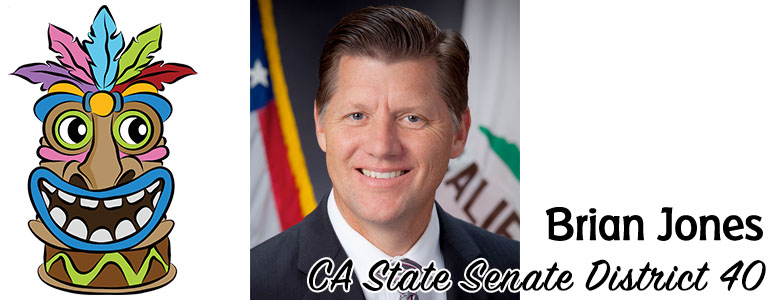
Senate Minority Leader Brian W. Jones (R-San Diego) slammed Governor Newsom for signing into law Senate Bill X1-2, his measure that allows unelected bureaucrats to raise gas taxes:
“It’s unbelievable that Governor Newsom wants to spend $10 million to raise gas taxes in the midst of a $22.5 billion budget deficit,” said Leader Jones. “His reckless proposal allows unelected bureaucrats to intervene in the free market and jack up gas prices for those who can least afford it. Californians already pay the highest gas prices in the nation and they aren’t fooled by the governor’s smoke and mirrors. When the Legislature said “NO” to his original proposal, the Governor held closed-door meetings and cut Californians out of the conversation. I opposed this bill not because I’m protecting the companies, but because my constituents were cut out of the conversation on a rushed law and this bill is going to lead to higher gas prices for all Californians.”
California Senate and Assembly Democrats jammed through the governor’s proposal as SBX1-2, which allows the California Energy Commission, conveniently appointed by the governor, to decide fines on gasoline companies. This measure will ultimately impact supply and demand and create a ripple effect that creates higher prices at the pump, just as gas prices are approaching $5 per gallon in California. Leader Jones spoke in opposition to the measure on the Senate Floor last week.
Leader Jones offered an alternative approach to actually lower gas prices. Instead of raising gas taxes as the governor seeks to do, Leader Jones introduced Senate Bill X1-1 and Senate Bill 32, which suspends the state’s gas taxes and fees, resulting in an immediate price cut of $1 per gallon. SBX1-1 was dismissed on the Senate Floor by California Senate Democrats without even a debate. SB 32 has been double referred to first the Senate Environmental Quality Committee and then to the Senate Governance and Finance Committee. SB 32 is set for hearing on April 19, 2023 in the Senate Environmental Quality Committee.
